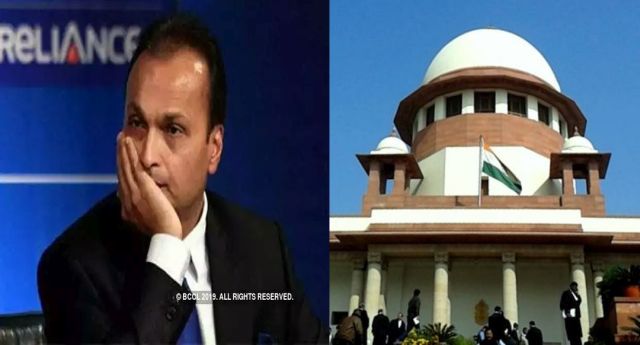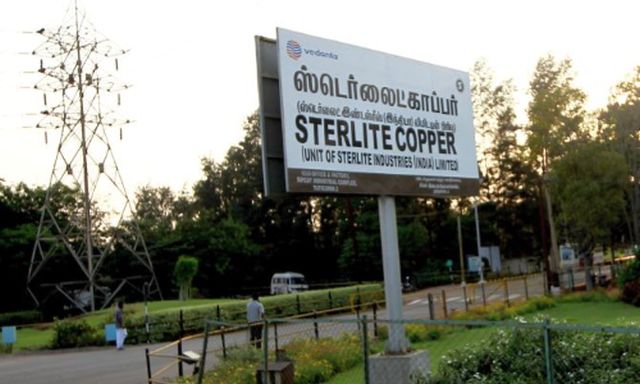
by Editor | May 25, 2021 | Halal Food, Halal Industries, Halal Medicine

New Delhi: The Supreme Court on Monday rejected a plea seeking a ban on the ‘Halal’ form of slaughtering of animals. The court observed that the petition was “mischievous in character”.
A bench headed by Justice Sanjay Kishan Kaul said that court cannot interfere with the food habits of people.
“Court cannot determine who can be a vegetarian or non-vegetarian. Those who want to eat Halal meat can eat Halal meat. Those who want to eat Jhatka meat can eat Jhatka meat,” the bench which also comprised justice Dinesh Maheshwari said.
The Akhand Bharat Morcha organisation had filed a petition saying that ‘Halal’ slaughter of animals is “extremely painful” and “inhuman”.
It was also pointed out that Jhatka does not cause suffering for animals since it dies instantaneously in such method of slaughter while in Halal, the animal dies a painful death.
Halal is practiced by Muslims, Jhatka method is excercised by Hindus.
The organisation had challenged Section 28 of the Prevention of Cruelty to Animals Act.
The said section provides that killing of animal in a manner required by the religion of any community will not be an offence under the act. Various forms of killing of animals, like Halal in which jugular vein of the animal is severed leading to blood of animal draining out leading to death of animal and Jhatka where animal is killed instantaneously by a single strike of sword to sever the head, are protected by Section 28.
The bench, however, declined to entertain the plea.
“Your petition is mischievous in character,” the top court said.

by Editor | May 25, 2021 | Employment, Government Jobs, News, Politics
 New Delhi : Union cabinet has given its nod to 10 per cent quota for poor among the general categories in Jammu and Kashmir and also approved the provision for SC/ST reservation in promotion in government jobs in the state.
New Delhi : Union cabinet has given its nod to 10 per cent quota for poor among the general categories in Jammu and Kashmir and also approved the provision for SC/ST reservation in promotion in government jobs in the state.
Minister of State in PMO Jitendra Singh said since Jammu and Kashmir is under the President’s Rule, the Cabinet on Tuesday in its meeting took these decisions.
Talking to reporters here at his official residence, Singh thanked Prime Minister Narendra Modi and said it will help a certain section of society which belongs to lower economic strata and will benefit equally Jammu and Kashmir like other states.
He said the government had introduced the provision of reservation in promotion for Scheduled Castes and Scheduled Tribes.
“That too has been approved for Jammu and Kashmir,” he said.
“It will enable Jammu and Kashmir to be beneficiaries of the same public welfare measures for the benefit of the weaker sections that PM Modi initiated for the rest of the country,” he said.
Hailing the decision Singh said that these decisions show the Prime Minister’s extremely sensitive concern for the state.
“In the last 65 years, no earlier government had ever taken an initiative on these lines and even now these decisions have come forth in the interest of the state because of the Modi Government being at the helm at the Centre,” he said.
The Union Cabinet had in January this year took the decision to provide for 10 per cent quota for people belonging to ‘unreserved categories’, including Christians and Muslims, in jobs and education with an annual income limit of Rs 8 lakh and land-holding ceiling of about five acres, highly-placed sources said.
A Constitution Amendment bill for the purpose was recently passed by the Parliament.
—IANS

by Editor | May 25, 2021 | News
 New Delhi : The Supreme Court on Wednesday directed Reliance Communications to pay Rs 453 crore to Ericsson India within four weeks failing which its chairman will have to undergo a three-month sentence.
New Delhi : The Supreme Court on Wednesday directed Reliance Communications to pay Rs 453 crore to Ericsson India within four weeks failing which its chairman will have to undergo a three-month sentence.
A bench of Justice Rohinton Fali Nariman and Justice Vineet Saran directed the court’s Registry to give Ericsson Rs 118 crore that were earlier deposited by RCOM.
The court said that the entire amount that RCOM has to pay to Ericsson is Rs 550 crore plus the interest that was generated.
The court also imposed a fine of Rs 1 crore each on RCOM, Reliance Telecommunication and Reliance Infratel that would be deposited with the Supreme Court Legal Services Committee (SCLSC).
In case of default the Chairman of all three companies would have to undergo sentence of one month each.
The bench ordered this as it did not accept the “unconditional apology” tendered to the court by the RCOM Chairman.
RCOM Chairman Anil Ambani was present in the court when the order was announced.
—IANS

by Editor | May 25, 2021 | Corporate, Corporate Buzz, News
 New Delhi : In a set-back to Vedanta, the Supreme Court on Monday refused to order the re-opening of its Sterlite Copper Smelting plant located in Tamil Nadu as it set-aside the National Green Tribunal’s (NGT) December 15 order on the grounds of jurisdiction.
New Delhi : In a set-back to Vedanta, the Supreme Court on Monday refused to order the re-opening of its Sterlite Copper Smelting plant located in Tamil Nadu as it set-aside the National Green Tribunal’s (NGT) December 15 order on the grounds of jurisdiction.
Setting aside the NGT order on maintainability, a bench of Justice Rohinton Fali Nariman and Justice Vineet Saran asked Vedanta to approach the High Court and since the Thoothukudi plant has been locked up for quite some time, they could urge the High Court Chief Justice for an expeditious hearing and interim relief.
The plant was shut down permanently on May 28, 2018, when the state government had ordered the Tamil Nadu Pollution Control Board (TNPCB) to seal and “permanently” close the plant in the wake of protests over pollution concerns.
The protests had turned violent, resulting in the death of 13 people in police firing on May 22-23 in Tuticorin, officially called the Thoothukudi port city.
The top court verdict came on the TNPCB’s plea against the December 15, 2018, NGT order directing it to give its consent.
The grant of consent by the state pollution control board was subject to the satisfaction of certain conditions by Vedanta.
The TNPCB had in the course of arguments asserted that the copper smelting plant was the cause of near irreversible ground water pollution and thus could not be allowed to resume operation.
On the other hand, Vedanta had described as “political” the decision to put the plant under the lock.
Vedanta had contended that the high level ground water pollution was not limited just to Thoothukudi alone, and that similar situation existed in other parts of the state.
—IANS

by Editor | May 25, 2021 | News, Politics
 New Delhi : A two-judge bench of the Supreme Court on Thursday delivered a split verdict on the powers of the Delhi government, with the issue now being referred to a larger bench.
New Delhi : A two-judge bench of the Supreme Court on Thursday delivered a split verdict on the powers of the Delhi government, with the issue now being referred to a larger bench.
While Justice A.K. Sikri said transfers and postings of Joint Secretaries and officers above will be in the domain of Lieutenant Governor; for those below them, the recommendation will be routed through the Council of Ministers of the elected government in Delhi.
However, Justice Ashok Bhushan differed saying that the Delhi government has no control over appointments. Transfer and appointment of “higher” officers will rest with the Centre, he added.
The Centre alone will control the Anti-Corruption Bureau and can only pass orders under the Commission of Inquiry Act.
The bench also said that the Delhi government will have the powers to appoint Special Public Prosecutor, and decide the minimum rate of the agricultural land in the national capital. The power to regulate electricity will also rest with the Delhi government.
Justice Sikri speaking for the bench on the issues except services said that there has to be mutual respect between the Delhi government and the Lieutenant Governor as it was an essential part of good governance.
Saying that both — the LG and the Delhi government — must realise that they are there to serve the people. The court said that LG will not routinely differ with Delhi government.
He said that on the issues where differences are fundamental backed by cogent reasons, the LG would refer the matter to the President for a decision which would be binding.
The court also made it clear that the LG would not unduly delay referring the matter to the President where there is a fundamental difference of opinion with the Delhi government.
—IANS





